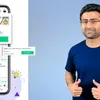How edtech startup Talentedge looks to make a dent in higher degree education with its direct-to-device SaaS model
Talentedge partners with universities and enables them to offer online degree and certification courses. The opportunity grew multifold for the company after the government approved online degree programmes as part of NEP 2020.
There are around 250 million students who attend school in India -- be it private or government – according to a 2018 report by Statista. However, when it comes to higher education, the ratio falls low, with only 27.4 percent of the population in the age group 18-23 enrolling for degree courses.
Gurugram-based looks to make a dent here with its edtech solutions, with both B2B and B2C model at play. The startup was founded in 2012 by Aditya Malik.
As part of its B2B offering, the startup offers a SaaS solution and partners with universities to enable them to offer online degree programmes. This means that the degree and content shared are completely in the name of the university while Talentedge works as an OPM (online programme manager), which is quite a popular concept in the US.
Along with this, it also runs an online live interaction-based certification programme for individual students in partnership with institutes like IIM, MICA, XLRI, and UCLA, among others. These certifications are across enterprise segments such as HR, finance, technology, leadership, management, as well as its own Talentedge certification.
“We have been pioneers in live, interactive, anywhere learning, so we coined the term D2D – Direct-to-Device. Live learning did not exist six years ago (2014) when we launched,” says Aditya.
Since its launch, Talentedge claims to have more than 500,000 learners with an 80 percent customer satisfaction and referral orientation. It has so far launched more than 15 courses, and another 15 are in pipeline for the next few years.

The Journey so far
Talentedge started up by offering skill-based certifications and enterprise education with a team of two. The idea was to focus more on the B2B side, and working with corporates, thereby giving an ‘edge’ to the ‘talent’.
However, 2012 was a period when education was primarily offline.
Aditya says, when he connected with the industry leaders then, the debate was primarily on how to use technology to create an ‘anytime, anywhere' learning model for enterprises. This led to the creation of the ‘direct-to-device’ concept.
“It took us two years to build it from scratch. We built our own learning management system. Also, videos needed to be run on lesser bandwidth as internet penetration was much lower. Online live learning or video learning is common today, but back then Skype was the only video service available. So this was a huge task for us as we had to build the complete tech stack,” he adds.
Once their tech stack was built, around 2014-15, they shifted their focus on offering degree courses online as part of partner institutes' distance learning courses along with individual certification courses with live interactive classes.
“The latest boost to our vision was given by the NEP2020 policy by the government, which stated that online degrees will now be equivalent to offline degrees, and will be applicable for jobs. We have now signed up six exclusive contracts with some of the top universities as an OPM, and a few more are in the pipeline,” says Aditya.
Business growth
The key categories of courses, which have seen a maximum 50 percent increase in inquiries over the years include HR, marketing, analytics, strategy, leadership, and finance. It also claims to have over 17.5 million man-hours of learning completed on the platform.
During the pandemic too, the company was able to sustain its growth graph. While its team grew by 50 percent to more than 250 people, the average revenue per enrolment per course grew by 40 percent.
“Approximately, 60 percent of our learners belong to Tier II/III/IV cities while 40 percent from Tier-I/metros. We have seen above 90 percent completion rates. Also, 92 percent of people have reported a positive impact on their careers,” he adds.
Aditya also claims to have earned 2X revenue over the last two years, and is looking for a very strong fiscal year ahead.

Challenges
Direct-to-device being a novel concept at the time, it was difficult to convince the universities when Talentedge attempted to enter the degree course segment.
Aditya shares that it took them 12 months to get their first premium institution on board. The first turning point came when they partnered with IIFT.
“IIFT was the first institute that partnered with us, understood and realised our vision, and decided to join hands. Since then, we haven't stopped and our long-standing relationships with IIMs, MICA, XLRI, and now eCornell, UCLA, and other premium institutions is a testament to the team and its efforts,” he adds.
Today, the startup claims to have partnered with more than 30 institutes, with more than 500K learners using its service. It is backed by an undisclosed family office and claims to have received the support of Rs 200 crore so far. It works on a typical revenue-sharing model, which ranges from 45 percent to 60 percent depending upon the kind of service being provided.
“After spending around 22 years of my career with companies like Lumis Partners, Bank of America, and GE, among others, Talentedge has been more of a personal vision and mission than just being an entrepreneurial venture. I aspire to change the way India learns, enabling learning with purpose and instilling a ‘now you can’ attitude in people,” he says.
Plans ahead
Aditya believes the opportunity is huge as the government now allows dual degrees and one can do a pin code level penetration when it comes to internet-led services.
In the next 24 months, the team aims to offer the same quality education in vernacular languages.
“AICTE has already announced a couple of degrees in vernacular. The team is now strengthening its tech stack utilising artificial intelligence, cloud campus, social collaborative learning, content curation, gamified content, assessment, analytics, and more,” he says.
At the same time, the focus is also on strengthening the leadership team, expanding the team across domains, as well as investing in brand and technology.
Going ahead, he believes that the Covid-19 pandemic has accelerated things at a fast pace in edtech, increasing adoption towards online among teachers, parents, and students. While premier institutes were already adopting online channels to offer degree courses, now state universities and central universities have come online as well, which is a booster.
While initially, the focus was on bringing trust to the ecosystem in the direct-to-device concept, now the challenge is to execute things flawlessly. and keep unit economics in control.
“We believe that going forward with online degree courses will be a game changer. As an OPM, we aim to position ourselves at the right place at the right time to bring education to the masses,” says Aditya.
Edited by Megha Reddy










